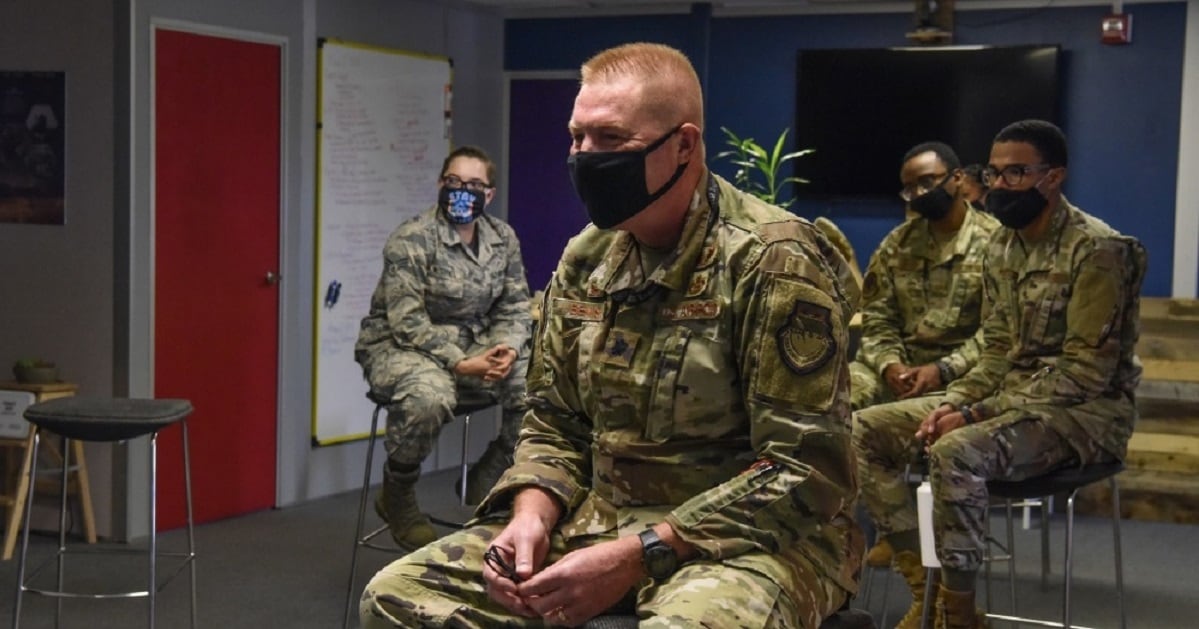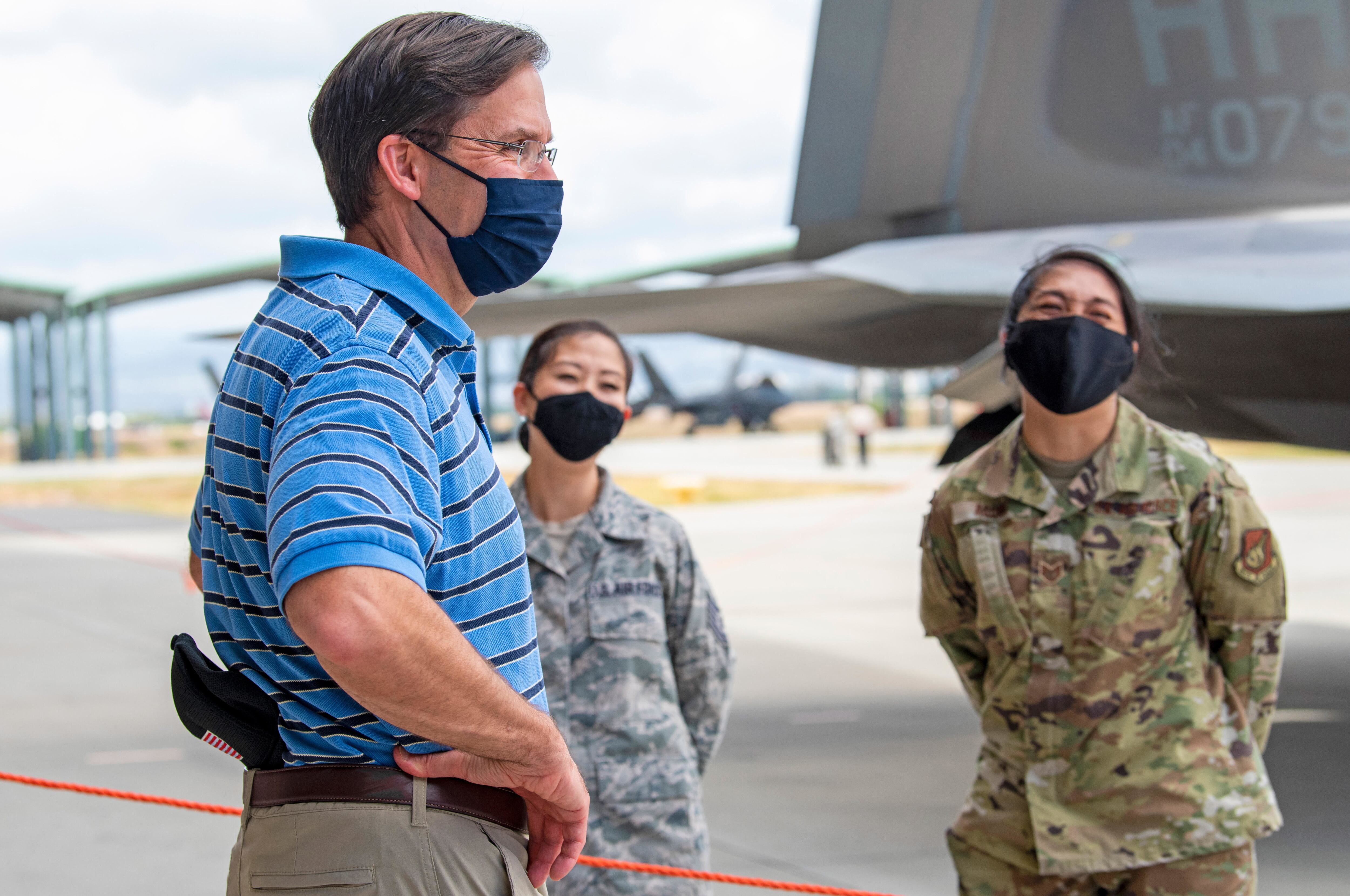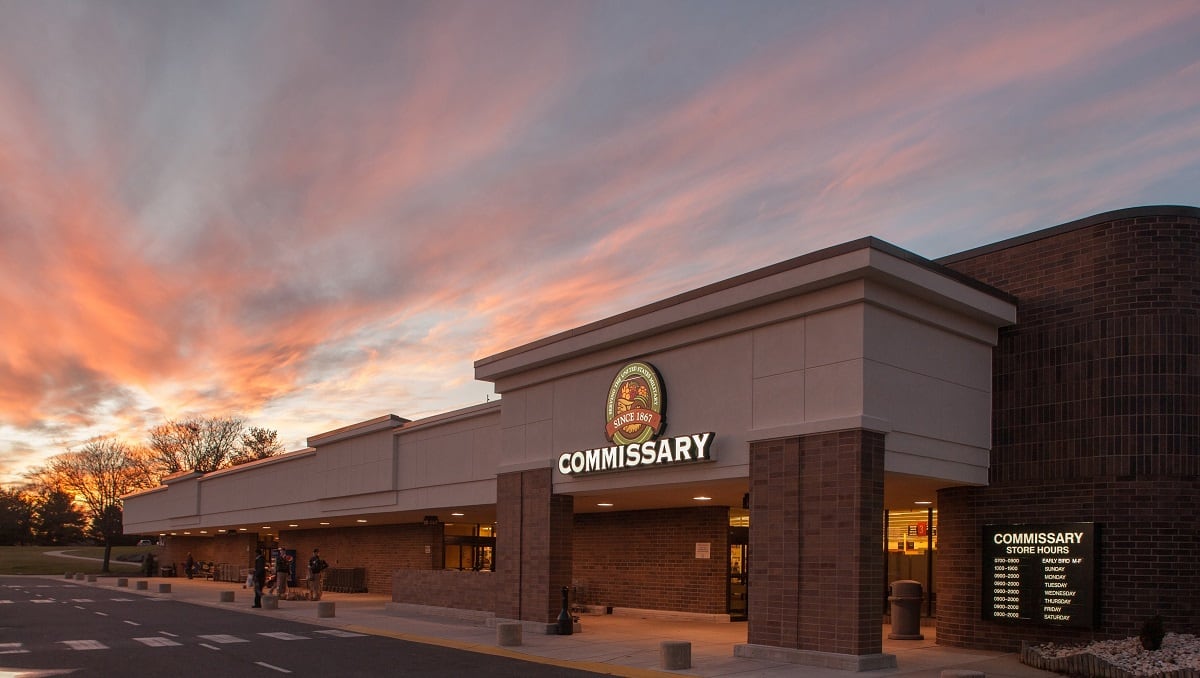HONOLULU — When Defense Secretary Mark Esper sits down to talk with troops about racial insensitivity in the military, he said, the biggest issue they call out is the unintended discrimination and insensitivity they face from other service members.
Esper met with airmen and sailors for diversity and inclusion sensing sessions during a late August trip to Guam and Hawaii. Such sessions have been a regular feature of his schedule since early summer, after the late May death of George Floyd — a Black man who died while being restrained by a white Minneapolis police officer, who has since been charged with his murder — inspired protests around the country and heartfelt messages of solidarity from senior military leadership.
“What they tell me is, for the most part, any type of bias that they experience has been mostly unconscious bias,” he said. “So that’s the good news story.”
In other words, issues like microaggressions ― for example, making an assumption or generalization, or an ill-advised attempt at humor, about someone based on their background ― are apparently more common than outright racist comments.
“But that doesn’t mean that it’s exclusively unconscious bias,” he added. “You know, some of it is conscious bias.”
After his first few sensing sessions, earlier this summer, Esper stood up a team to examine the military’s success with inclusivity and make recommendations for what should change.
RELATED

That has included issuing guidance to remove photos from promotion packets and reviewing hair standards — some of which have historically limited natural hair styles for Black women — among other moves.
“I see a continuity in terms of their feedback, and ways to address bias in the ranks,” Esper said. “They all shared that there’s a [discomfort] about discussing these issues, issues of race. Much less so when you compare other issues that we deal with in the military.”
But their suggestions trend away from the military’s traditional methods for making change, which include mandatory training and written policy.
“They want more conversations,” he said. “I don’t believe anybody thinks there’s a silver bullet. They certainly want there to be more discussions. Or would welcome more discussion — and less formalized discussion, more organic discussion.”
Esper’s comments came days before an Army second lieutenant’s Holocaust joke, posted on TikTok, went viral, prompting his suspension and an investigation into his conduct.
RELATED

The backlash, largely on Twitter, was swift. Some active troops called for an immediate discharge of 2nd Lt. Nathan Freihofer, who had been a 3rd Infantry Division platoon leader, arguing that he could never lead effectively leave soldiers with that type of attitude and judgment.
Others advocated that mentorship would help him learn about the negative impact of his “jokes” and help him bounce back.
In any case, the incident created an opening for a broader discussion about what’s acceptable from service members, and how leadership and peers should hold others accountable.
They’re “just looking for that empathy and that understanding, and others being able to have that conversation without feeling like they’re somehow crossing the line,” Esper said of more junior troops wanting to have an open discussion about their experiences.
Meghann Myers is the Pentagon bureau chief at Military Times. She covers operations, policy, personnel, leadership and other issues affecting service members.





